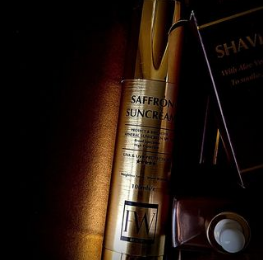MELANOMA STRIKES MEN HARDER

You've got four choices when it comes to protecting your skin from the sun.
- To avoid painful burns, premature aging, and potentially lethal skin cancer
- You can stay indoors (not much fun)
- You can keep fully covered in dark clothing and a wide-brimmed hat (not very stylish)
-
You can slather on the sunscreen from head to toe.
The lighter-skinned you are, the higher the SPF you should use. Don't even bother buying a sunblock or suncreen with less than an SPF (Sun Protection Factor) of 15. Each level of SPF increases the time you can stay in the sun without burning.
Skin cancer due to sun exposure appears faster and is more severe in males than in females. It's well known that men are more likely to get skin cancer than women are. Men get twice the overall number of skin cancers and three times more squamous cell carcinomas than women do. Researchers usually say this is because men are more likely than women to have outdoor jobs -- and that they are less likely to protect their skin with suncreen.
Men’s Skin More Sensitive?
A study in the US showed that only 51% of men had used sun cream in the last year. In the same study, 70% admitted not knowing the signs and symptoms of skin cancer. Other surveys have shown that 50% more men than women forget to protect their skin and 75% more aren't worried about getting sunburnt Even after having melanoma, the most serious type of skin cancer, one study. found that men were consistently less likely to take measures to prevent sun exposure to avoid future cancer.
Despite much of the advertising for sun cream and skin cancer campaigns targeting women, 50% of cases of skin cancer are in men!
By age 50, men are also more likely than women to develop melanoma. This number jumps by age 65, making men 2 times as likely as women of the same age to get melanoma. By age 80, men are 3 times more likely than women in that age group to develop melanoma.
Researchers believe that a major cause may lie in men’s skin. We know that men’s skin differs from women’s skin. Men have thicker skin with less fat beneath. A man’s skin also contains more collagen and elastin, fibers that give the skin firmness and keep it tight.
Research shows that these differences make men’s skin more likely to be damaged by the sun’s ultraviolet (UV) rays. A study conducted in the Netherlands found that men’s skin reacted more intensely to UV rays than did women’s skin. A separate study reached the same conclusion.
Research also shows that a women’s skin may be better at repairing the damage caused by UV rays.




Leave a comment